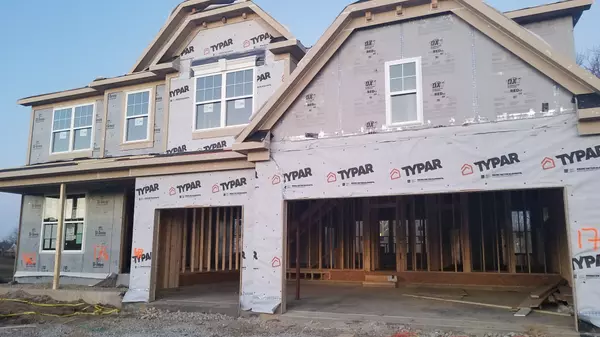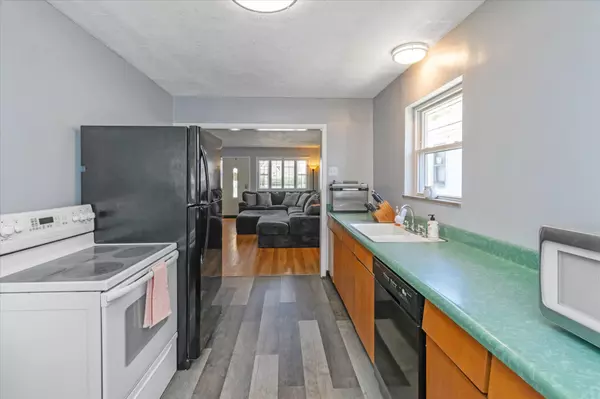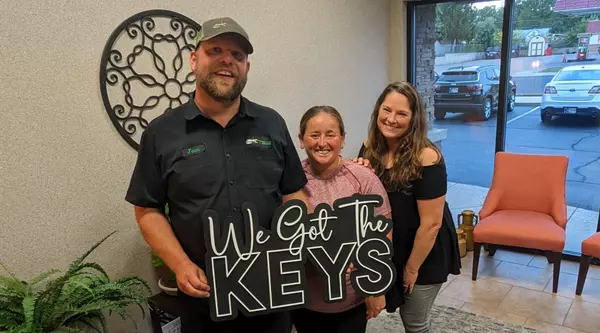
Realtor Safety Tips: Expert Advice from an Indianapolis SWAT Leader
In the fast-paced world of real estate, safety remains paramount for agents. Whether hosting an open house, showing a property, or meeting a new client, being prepared and vigilant can significantly mitigate risks. To provide comprehensive guidance, we've collaborated with Mike Hart, a seasoned SWAT leader and the owner of Asset Protection & Consulting, LLC, to offer expert insights into safeguarding oneself in every situation. Situational Awareness Situational awareness serves as the foundation of safety, empowering individuals to perceive and respond effectively to potential threats. Mike underscores the importance of maintaining acute awareness of one's surroundings, emphasizing that recognizing hazards or dangers is essential. While complete prevention may not always be feasible, heightened situational awareness can substantially enhance reaction times, enabling proactive responses. Be aware of your surroundings: Vigilance is key. By actively observing your environment, you can detect potential threats before they escalate. Recognize threats: Stay attuned to signs of danger, such as suspicious behavior or unfamiliar individuals lingering nearby. Increased reaction time: Heightened awareness facilitates quicker responses, allowing you to navigate challenging situations more effectively. Train for the Encounter Training plays a pivotal role in preparing individuals to handle adverse circumstances confidently. Mike advocates for trusting one's instincts and cultivating a proactive mindset to anticipate and address potential threats. Engaging in scenario-based training exercises enables individuals to develop appropriate responses and enhance their preparedness for various scenarios. Trust your instincts: Intuition often serves as an invaluable guide. If something feels amiss, heed your instincts and take necessary precautions. Scenario-based training: Practice responding to hypothetical situations to develop adaptive strategies and bolster preparedness. Proactive mindset: Adopting a proactive approach enables individuals to anticipate potential risks and take preemptive measures to mitigate them. The Rule of "OUT" Adhering to the Rule of "OUT" underscores the importance of proactive planning and maintaining multiple avenues of escape. By prioritizing strategies for exiting, securing, and neutralizing threats, individuals can bolster their safety measures and enhance their ability to navigate hazardous situations. Get out: Always identify exit routes and prioritize leaving the vicinity if a threat arises. Lock out: Secure entrances and take measures to prevent unauthorized access to your location. Take out: If faced with imminent danger, consider strategies to neutralize threats and protect yourself and others. The Recon Conducting thorough reconnaissance before engaging in any real estate activities is paramount for ensuring safety and security. Leveraging available resources, such as online platforms and public records, allows individuals to gather pertinent information and assess potential risks proactively. Utilize available resources: Tap into online tools, public records, and social media platforms to gather information about locations and individuals involved. Physical reconnaissance: Conduct on-site visits and observe the surrounding area to identify potential hazards or security vulnerabilities. Information gathering: Gather relevant details, including property history, neighborhood demographics, and any prior incidents, to inform your safety measures. The Plan Formulating a comprehensive plan encompasses proactive measures to mitigate risks and enhance personal safety. By communicating your whereabouts, setting timeframes, and combining training with reconnaissance insights, individuals can exercise greater control over their environment. Share your location: Inform trusted contacts of your whereabouts and establish communication protocols to ensure regular check-ins. Set timeframes: Establish clear timeframes for meetings or property visits, allowing for accountability and monitoring. Integrate training and reconnaissance: Combine preparedness training with insights gathered during reconnaissance to develop proactive strategies for managing potential risks. The Arrival Arriving at a location demands careful consideration and proactive measures to enhance safety. By adopting a cautious approach, individuals can minimize exposure to potential threats and maintain control over their surroundings. Bring a companion: Whenever possible, attend appointments or property viewings with a trusted companion to enhance safety. Scout the area: Conduct a preliminary assessment of the location and its surroundings, noting any potential hazards or suspicious activity. Park strategically: Opt for well-lit areas and avoid parking directly in front of the location to minimize exposure. The Approach Approaching clients or properties requires attentiveness and readiness to respond to potential risks. By maintaining situational awareness, keeping distractions at bay, and preparing for unexpected situations, individuals can safeguard themselves effectively. Stay attentive: Avoid distractions and maintain awareness of your surroundings at all times. Minimize distractions: Keep your phone out of sight and focus on observing your environment. Be prepared: Carry essential items such as a flashlight and keep your hands free of unnecessary items to facilitate swift responses. The Meet Interacting with clients demands vigilance and proactive measures to ensure personal safety. By assessing the environment, identifying exit points, and implementing protective measures, individuals can mitigate potential risks during meetings. Assess the environment: Familiarize yourself with the property layout and identify potential exit points or areas of vulnerability. Maintain control: Position yourself strategically to maintain control over the interaction and minimize risks. Prioritize safety: Implement measures such as letting the client lead when navigating staircases and avoiding positioning yourself between the client and exits. The Departure Exiting a location necessitates caution and proactive measures to mitigate risks. By assessing the surroundings, maintaining awareness, and planning alternative routes, individuals can minimize exposure to potential threats during departure. Assess the surroundings: Before exiting, conduct a final assessment of the environment and observe for any signs of suspicious activity. Plan alternative routes: Consider alternative exit routes and avoid predictable patterns to minimize risks during departure. Maintain awareness: Stay vigilant and observant as you leave the location, ensuring readiness to respond to any potential threats. Protect the Asset Ultimately, prioritizing personal safety is paramount, with individuals being the most valuable asset. Investing in training, cultivating a resilient mindset, and adopting proactive safety measures are crucial steps toward ensuring personal protection and well-being. Invest in training: Equip yourself with the necessary skills and knowledge to respond effectively to potential threats. Cultivate resilience: Foster a resilient mindset and determination to survive in challenging situations. Prioritize personal protection: Consider investing in personal protective equipment and training to enhance your safety measures. Prioritizing safety is essential for real estate professionals operating in unknown environments. By incorporating expert insights from Mike Hart and implementing proactive safety measures, individuals can navigate their professional responsibilities with confidence and peace of mind. Stay vigilant, stay prepared, and prioritize your personal safety above all else.
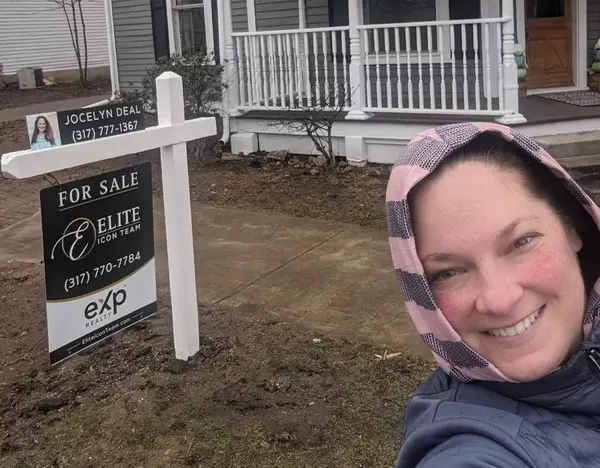
How to Become a Real Estate Agent
Becoming a real estate agent can be an exciting and rewarding career choice. Not only do you have the opportunity to help people find their dream homes, but you also have the potential to earn a lucrative income. And what most prospective agents don't realize is that licensure is only the first step. If you want to truly succeed in the real estate industry, you must cultivate the winning habits of producing agents. Get your real estate license If you want to learn all the steps it takes to get your real estate license, check out our article, "How Do I Get My Real Estate License?" To summarize the process, you must complete the following steps: Complete your 90-hour pre-licensing course Pass the state licensing exam Find a managing broker Apply for your license Complete your 30-hour post-licensing course Most of these steps can be completed both online or in-person. For prospective agents seeking licensure in Indiana, you may consider a notable school like The CE Shop for your pre-licensing needs. Work your sphere of influence (SOI) To be a successful agent, you'll need to build strong relationships with your clients and make certain that everyone around you understands that you are the authority on your local market. Working your sphere of influence - that is, your friends, family, and acquaintances - ensures that you have a basis of support and a ready source of transactional volume. There are individuals in your SOI who need of your services, and you need to be the person they think of first in fulfilling them. Connecting with them consistency on social media and in-person ensures that those personal connections will turn into business relationships when the time is right. Be sure to reach out to your sphere from reviews and referrals as well. People who already know and like you are the best source of business because they already want to see you succeed. Don't be afraid to connect with them and help them with their real estate needs! Prospect your database In the dynamic world of real estate, success hinges on your ability to consistently generate and nurture leads. Whether you're a seasoned agent or just starting out, mastering lead generation is crucial for driving your pipeline and achieving your transaction goals. Why database prospecting matters: Your database is a goldmine of potential opportunities. By actively prospecting leads from your database, you're tapping into a pool of individuals who have already shown interest in your services or expressed intent to buy or sell. This targeted approach not only saves time but also increases your chances of converting leads into clients. Moreover, consistently engaging with your database builds trust and rapport over time. By staying top-of-mind through regular communication, you position yourself as the go-to real estate expert when they're ready to make a move. Real estate prospecting steps: Lead Identification: This initial stage involves identifying potential leads from various sources such as referrals, past clients, online inquiries, and marketing campaigns. Leverage technology and analytics to track leads and prioritize those with the highest potential. Lead Capture: Once identified, capture lead information through various channels including website forms, social media interactions, open house sign-ins, and networking events. Implement robust CRM systems to organize and manage lead data efficiently. Lead Qualification: Not all leads are created equal. Qualify leads based on factors like readiness to buy or sell, budget, location preferences, and specific needs. This step ensures you're investing your time and resources into prospects with genuine intent. Lead Nurturing: Establish a consistent communication cadence to nurture leads over time. Utilize a mix of personalized emails, phone calls, text messages, and valuable content such as market updates and property listings. Tailor your approach to each lead's preferences and stage in the buying or selling journey. Prospecting Techniques: Employ a variety of prospecting techniques including calling, texting, emailing, voicemail drops, door knocking, and social media outreach. Experiment with different methods to find what works best for your target audience and market dynamics. Appointment Setting: Once a lead shows interest, focus on setting appointments for further discussion. Clearly articulate the value you bring and outline the next steps in the process. Confirm appointments promptly and be prepared to address any questions or concerns. Appointment Holding: Make the most of your appointments by actively listening to clients' needs, providing expert guidance, and showcasing your market expertise. Build rapport and trust by demonstrating professionalism and transparency throughout the meeting. Signing Agreements: After successfully guiding clients through the consultation process, secure their commitment by signing the buyer or seller agreement. Clearly outline expectations, responsibilities, and timelines to ensure a smooth transaction. After your buyer agency agreement or listing contract is signed, you will then move into the actual process of working the transaction, but the communication with your client never stops. By mastering each stage of the lead generation process, you'll build a wide funnel that consistently feeds your pipeline with qualified prospects. Stay committed to providing exceptional service, continuously refining your strategies, and adapting to market changes. With dedication and perseverance, you'll not only meet but exceed your targeted number of transactions, establishing yourself as a top producer in the competitive real estate industry. Expand your reach through social media Your audience and connections are on social media. This is not an opinion but an undeniable fact. Posting and engaging on social media has become a core tenet of real estate professionals looking to connect with their audience, showcase their expertise, and drive business growth. From engaging with your sphere of influence to maximizing the impact of your listings, harnessing the power of social media can elevate your real estate game to new heights. Here's how you can leverage social media effectively to build relationships, share valuable content, and expand your reach across various platforms. Connect with your sphere of influence: One of the most effective uses of social media in real estate is connecting with your sphere of influence (SOI). As mentioned above, your SOI consists of friends, family, past clients, and acquaintances who can provide valuable referrals and repeat business. Strike a balance between personal and business posts to showcase your personality while highlighting your expertise in the real estate market. Share anecdotes, achievements, and industry insights to keep your audience engaged and informed. Upload consistent short-form video content: Short-form video (TikToks, Instagram Reels, YouTube Shorts, etc.) has emerged as a powerful content format on social media, capturing attention and driving engagement. Commit to shooting short videos of under 30 seconds at least three times every day to maintain a consistent presence and connect with your audience in a dynamic way. They need to see and hear you. Don't be scared! You do not need to be fancy or produce a Hollywood-quality video to succeed. Just be yourself and get in front of the camera. Share quick tips, market updates, behind-the-scenes glimpses, or simply share a personal message to humanize your brand and foster authenticity. Maximize showings and listings: Make the most of your showings and listings by capturing compelling content through photos and videos. Provide virtual tours of your listings, showcase neighborhood highlights, and demonstrate your activity level in the market. Share snippets of your day-to-day experiences, whether it's attending open houses, meeting clients, or exploring new properties. This not only enhances your credibility but also attracts potential buyers and sellers who resonate with your approach. Engage on an invididual level: Social media offers numerous opportunities for individual engagement and networking. Take the time to connect with people on a personal level by sending direct messages, following, replying to comments, and friending individuals within your target audience. Engage in meaningful conversations, offer assistance, and provide value to establish rapport and build lasting relationships. Remember, genuine connections often lead to valuable referrals and business opportunities. Operate on every channel for maximum reach: To maximize your reach and visibility, operate on multiple social media channels while repurposing your content to streamline your efforts. Maintain a presence on platforms such as Facebook, Instagram, TikTok, X, SnapChat, LinkedIn, and YouTube to reach different demographics and cater to diverse preferences. Repurpose your content across channels by adapting it to suit each platform's format and audience preferences, making it simple to manage while maximizing your exposure. Be consistent Consistency is crucial in the real estate industry. Whether it's consistently posting on social media, following up with clients promptly, or staying updated on market trends, being diligent and dedicated will set you apart from your competition. By consistently delivering exceptional service and staying top-of-mind, you will build a strong reputation as a reliable and trustworthy agent. Becoming a real estate agent requires dedication, education, and effective strategies. Obtaining your real estate license is only the first step in your journey. As an agent, your role is to guide clients through the buying and selling process while building strong relationships. By prospecting, utilizing social media, and consistently delivering exceptional service, you can establish yourself as a successful real estate agent. If you want to make use of best-in-class systems to build these disciplines into your daily routine as an agent, consider joining Elite Icon Team! Learn more about what will set you apart from other agents as part of our Elite organization.
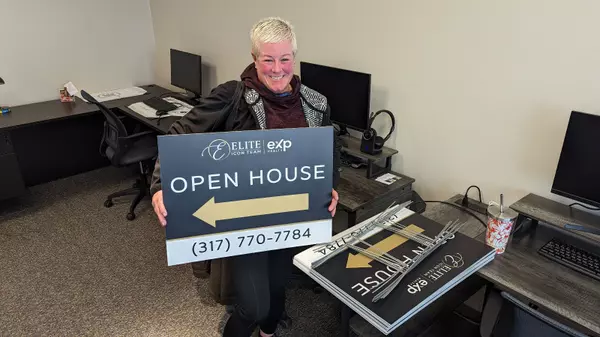
How Do I Get My Real Estate License?
Becoming a licensed real estate agent can be a rewarding career path, offering flexibility, potential for growth, and the opportunity to help others find their dream homes. However, the process of obtaining a real estate license can seem overwhelming to some. In this article, we will guide you through the steps required to get your real estate license, including the necessary education, exams, and application process. What is a real estate agent? To become a real estate agent, you must first understand the responsibilities and tasks that come with the profession. Real estate agents act as intermediaries between buyers and sellers, assisting clients with property transactions, negotiating deals, and offering guidance throughout the process. It's essential to have excellent communication skills, a strong work ethic, and a genuine interest in the industry. While experiencing a great degree of personal freedom, Realtors often work odd hours, including weekends. The process of succeeding in real estate is relatively simple, but it is not easy, per se. Complete your 90-hour broker pre-licensing course To become a licensed real estate agent, you must complete the necessary education requirements. In most states (including Indiana), this involves taking a 90-hour broker pre-licensing course, which covers fundamental topics such as property law, ethics, contracts, and financing. These courses can be completed online or in-person through accredited institutions. Make sure to choose a reputable provider that offers comprehensive and state-specific curriculum to ensure you receive the most relevant education. For prospective agents seeking licensure in Indiana, you may consider a notable school like The CE Shop for your pre-licensing needs. Pass your state licensing exam Once you have completed the 90-hour pre-licensing course, you will need to pass your state's real estate licensing exam. This exam assesses your knowledge and understanding of key real estate concepts, laws, and regulations. It's important to prepare adequately by studying course materials, practicing sample questions, completing practice exams, and seeking guidance from experienced professionals. A thorough understanding of the material will increase your chances of success on exam day. Choose your managing broker After passing the licensing exam, you will need to find a managing broker to sponsor your license. A managing broker is an experienced real estate professional who oversees and mentors new agents. Aligning yourself with a reputable and supportive managing broker can greatly enhance your chances of success in the industry. Look for someone who offers training, guidance, and opportunities for professional growth. If you are looking for a place to start, consider taking advantage of the massive training, mentoring, and lead opportunities at Elite Icon Team! Apply for your real estate license Once you have secured a managing broker, you can proceed to apply for your real estate license. The application process varies by state but typically involves submitting an application, paying a fee, and providing proof of education and exam completion. Be sure to follow all instructions carefully and ensure that all required documents are included to avoid any delays in obtaining your license. Complete your 30-hour post-licensing course Congratulations! You are now a licensed real estate agent. However, the learning doesn't stop there. Many states (including Indiana) require newly licensed agents to complete a 30-hour post-licensing course within a specified timeframe (in Indiana, it is two years). This course builds upon the foundational knowledge gained during the pre-licensing course and covers more advanced topics such as marketing, risk management, and agency relationships. To put it simply, the pre-licensing course teaches you the fundamentals of real estate and real estate law; the post-licensing course teaches you how to be a Realtor. Obtaining a real estate license requires dedication, education, and perseverance. The full process to get your real estate license is as follows: Completing a 90-hour pre-licensing course Passing the state licensing exam Finding a managing broker Applying for your license Completing your 30-hour post-licensing course Remember to continuously seek knowledge, stay updated with industry trends, and provide exceptional service to your clients to thrive in this competitive field. If you have any further questions on how to get started or what a career in real estate could look like, reach out to us at Elite Icon Team!
Categories
Recent Posts


